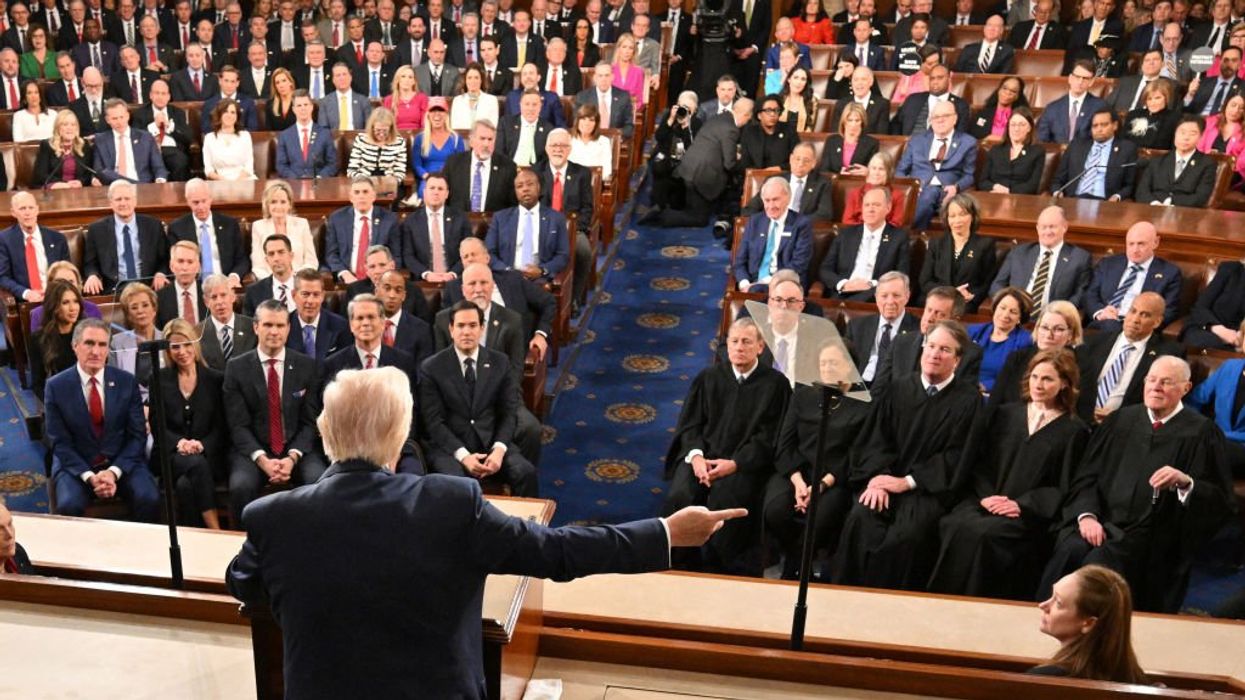On Tuesday, President Donald Trump addressed a joint session of Congress, emphasizing that his administration is “just getting started” in the wake of a contentious beginning to his second term. Significant themes, including substantial cuts to the federal workforce, shifts in traditional American alliances, and the impact of an escalating trade war on markets, characterized his address.
In his speech, Trump highlighted his actions over the past six weeks, claiming to have signed nearly 100 executive orders and taken over 400 executive actions to restore “common sense, safety, optimism, and wealth” across the country. He articulated that the electorate entrusted him with the leadership role and stressed that he was fulfilling that mandate.
During the lengthy address, which lasted an hour and 40 minutes, Trump defended his administration’s strategies, including a pointed acknowledgment of billionaire advisor Elon Musk and the Department of Government Efficiency task force (DOGE) for their contributions to the significant reduction of the federal government’s size.
"Tariffs are about making America rich again and making America great again,” Trump remarked while acknowledging, “There’ll be a little disturbance, but we’re OK with that. It won’t be much.”
Trump asserted a strategy of reciprocal retaliation regarding tariffs, stating, “Whatever they tariff us, we tariff them.” He maintained that the new tariffs would stimulate economic growth and create jobs despite warnings from economists that such policies could negatively impact consumers and exacerbate inflation. Hours earlier, he initiated a trade conflict with three of the United States' major trading partners, which led to a downturn in financial markets. The U.S. established 25% tariffs on goods imported from Mexico and Canada, increasing the previous levy on Chinese products to 20%.
Mr. Trump remarked, "The media and our allies in the Democrat Party repeatedly stated that we needed new legislation in order to secure the border. However, it appears that all we required was a new president." He highlighted his administration's efforts regarding border security and immigration, claiming it to be "the most sweeping border and immigration crackdown in American history."
Trump also touted other controversial actions taken by his administration, including renaming the Gulf of Mexico, designating English as the official language of the US, and prohibiting trans women from competing in women’s sports. “Our country will be woke no longer,” he stated.
He also mentioned ongoing efforts to “reclaim the Panama Canal” and reiterated his intention to take control of Greenland, saying, “One way or the other, we’re going to get it.”
The speech contained several inaccuracies and misleading statements, such as a claim about centenarians aged “110 to 119” receiving Social Security benefits.
Additionally, Trump attributed the rising price of eggs to his predecessor’s energy policies while promising that his “National ENERGY Emergency” plan would promote increased domestic drilling. He remarked, "Joe Biden especially let the price of eggs get out of control—and we are working hard to get it back down."
While egg prices did reach record highs during Biden's administration, it is important to note that the administration implemented various measures to address the bird flu outbreak, a significant factor contributing to the increase in egg prices.
Click HERE to read CBS News fact-checking of Trump's address to Congress.
Past presidents have typically used their first major speeches to reach across party lines and appeal to critics. In contrast, Trump labeled Joe Biden as the “worst president in American history” and suggested that new tech investments would not have occurred had Kamala Harris won the 2024 election.
“Why not join us in celebrating so many incredible wins for America?” Trump challenged Democrats, many of whom remained expressionless in the chamber.
The president received sustained applause from Republican members while facing jeers from Democrats. Throughout the address, several Democrats exited the chamber, and others silently protested with handheld signs.
Sen. Elissa Slotkin, a first-term senator from Michigan, delivered the Democratic rebuttal to President Trump's speech before Congress. In her remarks, Slotkin accused Trump of increasing costs while advocating for what she termed an “unprecedented giveaway to his billionaire friends.”
She stated, “For those keeping score, the national debt is going up, not down. And if he’s not careful, he could walk us right into a recession.”
To watch Sen. Elissa Slotkin's response, click HERE.
To watch President Donald Trump's speech, click HERE.
Hugo Balta is the executive editor of the Fulcrum and a board member of the Bridge Alliance Education Fund, the parent organization of The Fulcrum. He is the publisher of the Latino News Network.




















Trump & Hegseth gave Mark Kelly a huge 2028 gift